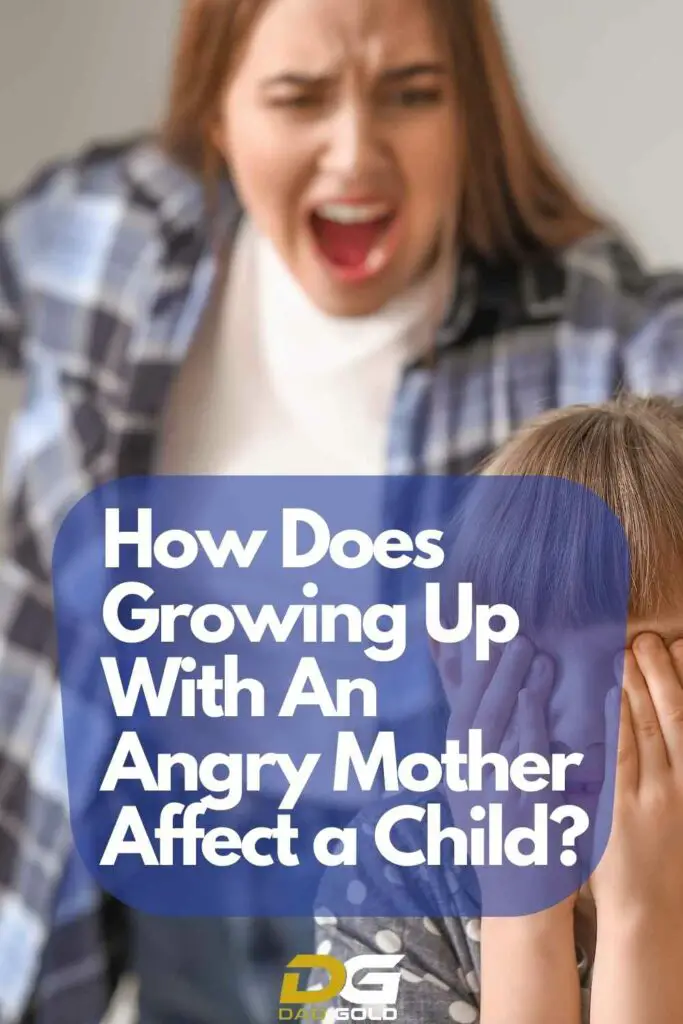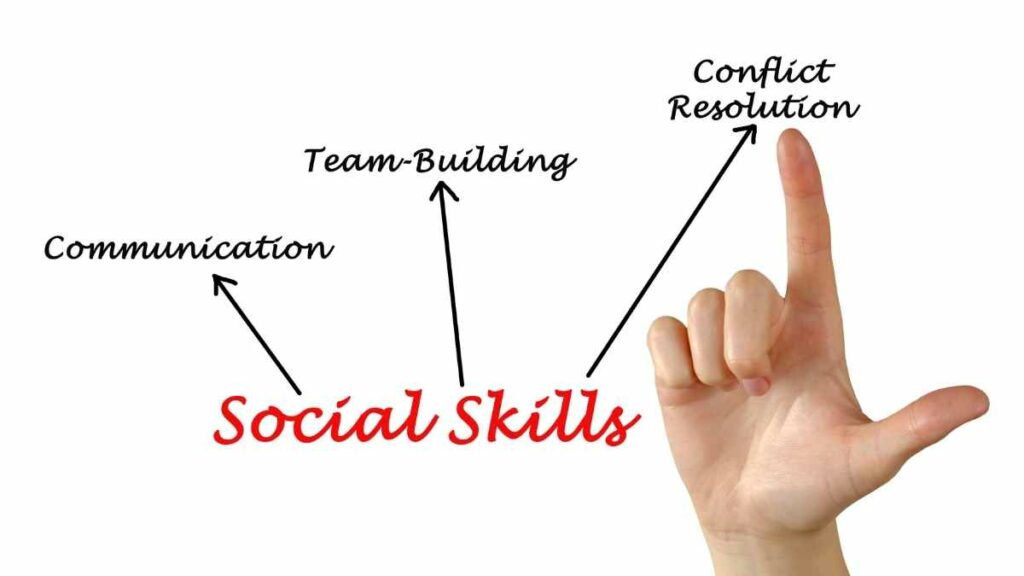Anger is a normal human emotion, and we all lose our cool sometimes. But what if almost everything sets you off, and you end up snapping at your little one too often? It might mean you have anger issues which can have a long-lasting effect on your children.
Moms must juggle kids, careers, relationships, and everything while running on fumes. When I say an angry mother, I don’t mean someone with a single angry outburst.
Rather I mean someone who has repeatedly been becoming angry lately. When it happens, their anger overpowers them even if they’ve been known as a calm and collected person before becoming a mom.
In this article, I’ll tell you how a mother’s anger affects her children.

13 Ways an angry mother affect a Child
How do you express your anger? Do you see red every time your kids won’t listen to you and end up yelling, criticizing, or physically hitting them? No matter how you exhibit your anger, it can impact your child’s social, emotional, and personality development.
Let’s talk about how uncontrolled parental anger can affect children.
Children Lose Self-esteem
Growing up with an angry mother means being constantly criticized for mistakes. It makes your kids doubt their abilities, and they grow up with poor self-esteem. They don’t feel confident about anything they say or do.
They feel insecure

If a mom regularly uses anger to manipulate a child, it makes them feel insecure. They struggle to pluck up the courage to speak up. Living with persistent fear and anxiety affects young children’s social, emotional, and cognitive development.
-

Bold Male Pride – Baseball Trucker Cap Celebrating Masculinity
$25.00 Select options This product has multiple variants. The options may be chosen on the product page -

Dad Bod Appreciation Gift Mug
$20.00 Add to cart -

Dad Bod, Bad Jokes Structured Baseball Cap
$31.00 Select options This product has multiple variants. The options may be chosen on the product page
Children who live in constant fear waiting for frequent anger outbursts, start to believe that the entire world expresses their feelings the same way as their mom does. They tend to exhibit the same anger and at-risk behavior at school as they think it’s normal.
Anger Impacts Child’s Brain Development
Moms are role models for their children. When you frequently get angry at your little ones, they start to blame themselves for making you angry. It makes them feel stressed and affects their brain development.
If your child is repeatedly exposed to aggressive and harsh parenting practices, it affects their brain function and changes their brain structure.
They have trouble focusing in school

Children might have difficulty focusing in school when they’re constantly being yelled at and don’t feel safe at home. Instead, they might feel worried and embarrassed about making a mistake in class, making it hard for your kid to pay attention in school.
They struggle with perfection to avoid being yelled at. Unfortunately, due to a lack of focus at school, your kid might not do well academically, affecting their chances of being a happy and successful adult later in life.
Children Feel Worthless
If you frequently use hurtful words whenever you get angry, your child might start to think that they are bad children and can’t do anything right. It makes them feel worthless and can make their bad behavior even worse.
Kids Suffer Physically and Mentally
Research showed that when a child is stressed due to an abusive environment, it can have a long-term impact on their physical health. However, due to higher stress levels, kids might develop sleeping problems.
Your mom-rage can contribute to an increased risk of developing a vascular disease or autoimmune disorders for your kids. It also increases the risk of premature mortality.
It also increases the risk of developing mental health conditions like anxiety and depression later in life.
They Suffer in Future Relationships

Children who grow up with an angry parent might be attracted to angry and toxic people who are easily angered. This happens as they associate dysfunctional and destructive behaviors with their parent’s authority.
They might grow up with trust issues and struggle to be vulnerable in their relationships.
They Struggle to Resolve Conflict
Being surrounded by verbal or physical abuse can make children believe that aggression is the way to conflict resolution. They don’t know how to manage their big emotions effectively and end up modeling their mom’s behavior.
They can’t resolve a conflict constructively and respectfully, adversely affecting their interpersonal communication skills.
Parents’ Anger Can Cause Control Issues in Children
Children living in a stressful environment might have control issues. It might stem from the fear that if they don’t micromanage and control everything, you’ll get angry again, and they’ll be in trouble.
They always try to walk on eggshells around you, which can be exhausting for a child.
Physical Punishment Can Make kids More Aggresive
Research has shown that hitting or spanking your child can lead to increased child aggression, antisocial behavior, lower intellectual achievement, poorer quality of parent-child relationships, and mental health problems.
Mom Rage Contributes to Poor Social Skills

Children of angry mothers feel like they don’t measure up and like to bottle up their emotions. They don’t feel comfortable playing with other kids. Some kids become quiet and reserved, while others become rude and aggressive.
They’re More Likely to Engage in delinquency
There’s a strong relationship between mom rage and delinquency. When a child doesn’t feel safe at home because of emotional, psychological, or physical abuse, they might feel obliged to resort to violence to protect themselves.
Growing Up With An angry Mother – Coping Strategies
Growing up with an angry mother can be a difficult and emotionally taxing experience for kids. It can leave them feeling scared, misunderstood, and alone.
If you know a child going through this, it’s important to offer support and let them know they are not alone. their first port of call should be to seek external help from a professional, but here are a few things you can do to help:
- Be a listening ear: Sometimes, kids need a safe space to vent and be heard. Make yourself available to listen and validate their feelings. Let them know it’s okay to feel the way they do and that you care about them.
- Help them find healthy outlets for their emotions: Kids may not always know how to express or cope with their emotions in healthy ways. Help them find activities that allow them to release their feelings positively, such as art, music, sports, or journaling.
- Encourage them to seek support: If a child is struggling with anger in their home, it can be helpful for them to talk to a trusted adult or therapist about their feelings. Encourage them to seek support and remind them that it’s okay to ask for help.
- Remind them they are not to blame: Kids need to know that they are not the cause of their mother’s anger. Help them understand that it’s not their fault and that they are not alone in their feelings.
- Offer hope and encouragement: It’s natural for kids to feel like their situation will never change, but it’s important to remind them that things can improve. Encourage them to hang in there and offer hope for a brighter future.
It’s not easy to watch a child struggle with an angry parent, but by offering support and encouragement, you can help them cope and find hope for the future.
Conclusion
It’s easy to lose control and snap at your kids when they don’t behave and won’t listen to you. But getting angry will only worsen their behavior, and you’ll end up feeling stuck in a situation you wanted to avoid at any cost.
That’s why you must take some time before responding to your kids. Get yourself under control and build a strong family relationship so your kids can feel more secure and loved.





